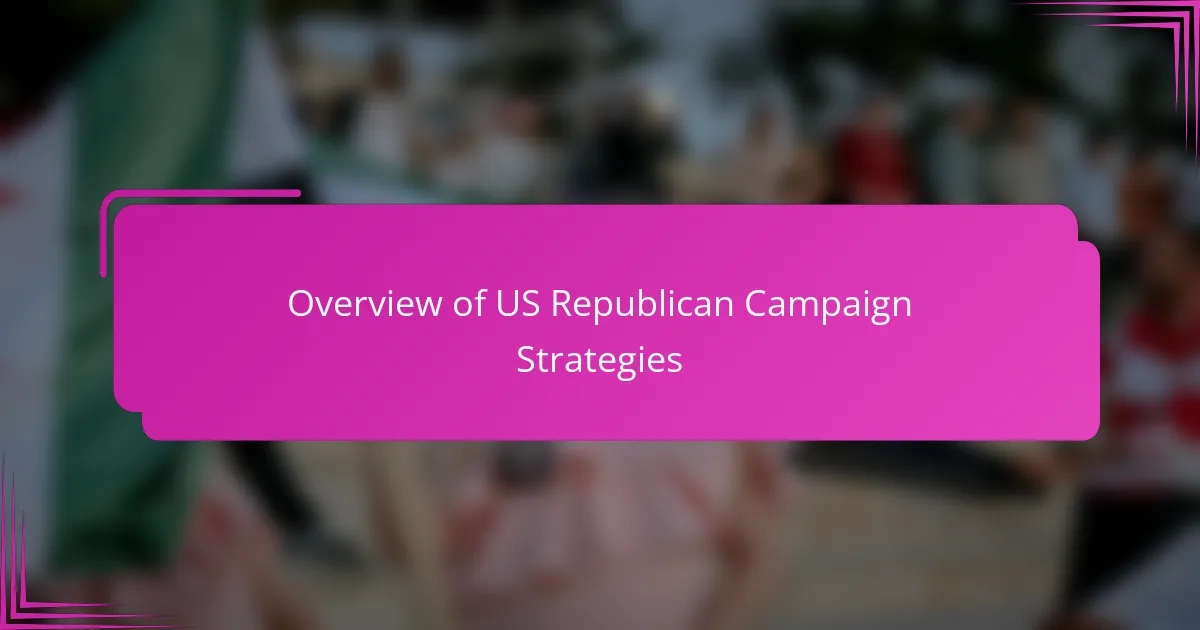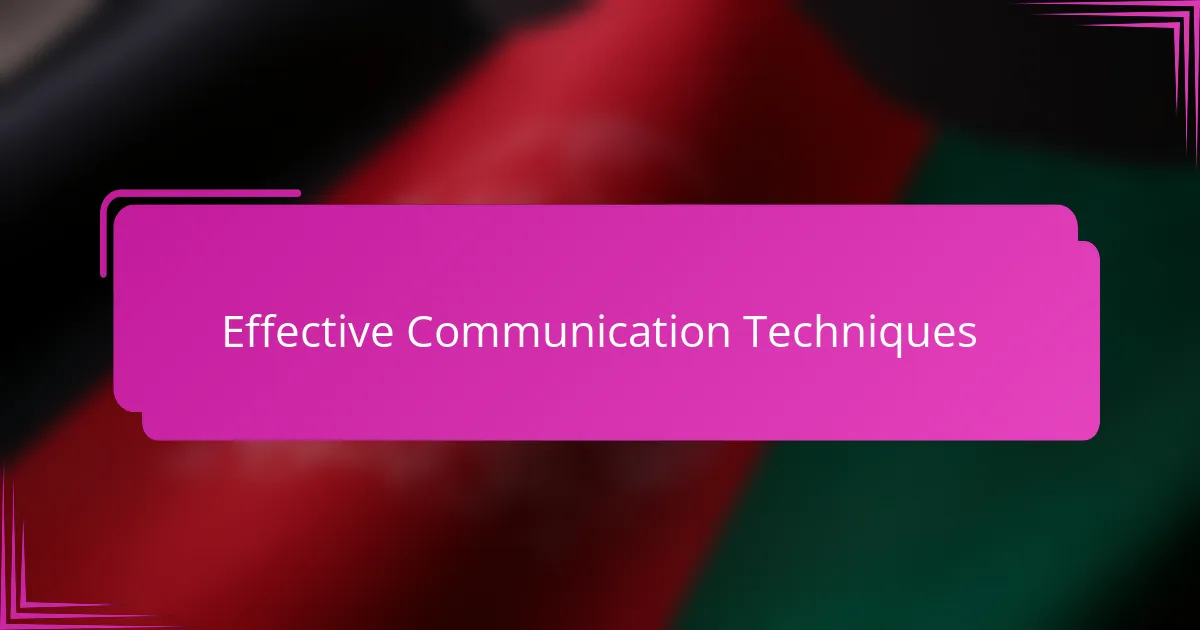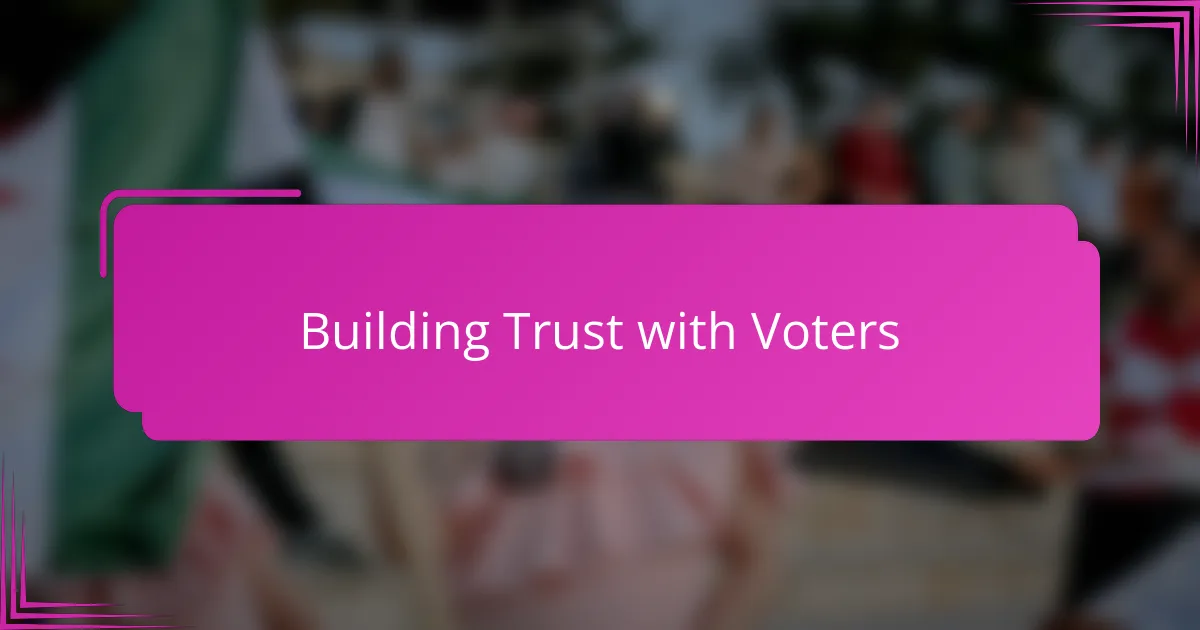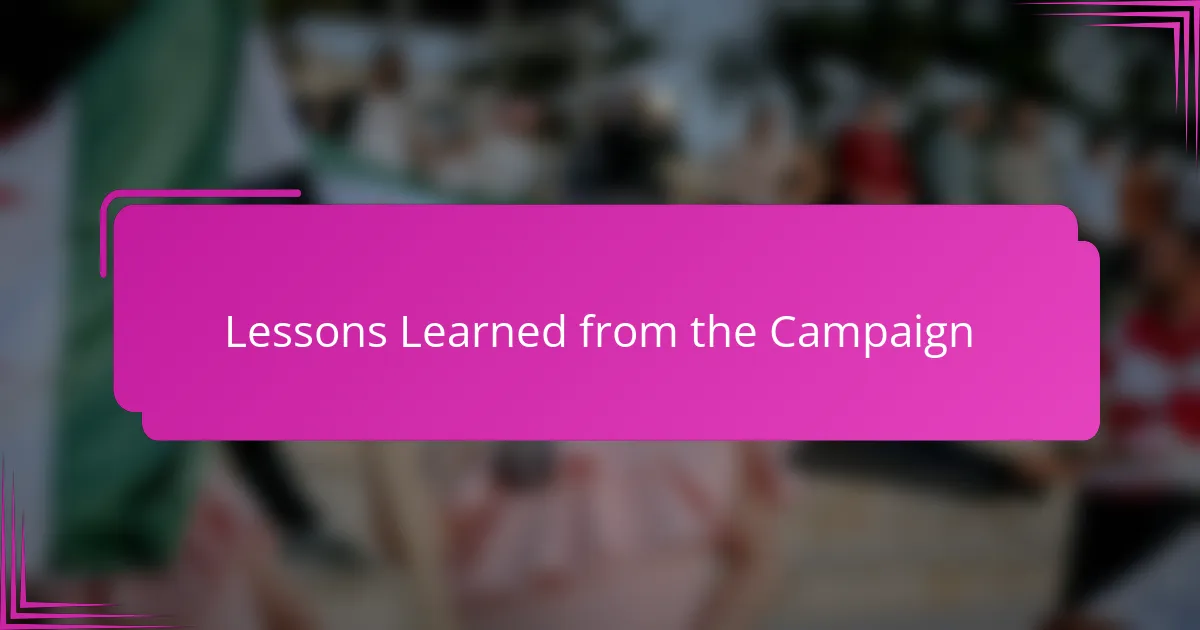Key takeaways
- Texas Republican voters prioritize independence, local control, and economic opportunity, reflecting a strong connection to their community and heritage.
- Effective communication relies on listening, simplicity, and authenticity, fostering trust and meaningful dialogue with voters.
- Building trust is achieved through consistent engagement, empathy, and transparency, emphasizing the importance of validating voters’ experiences.
- Personal storytelling and vulnerability create deeper connections, transforming political discussions into community-oriented conversations.

Understanding Republican Voters in Texas
What truly struck me about Republican voters in Texas is their deep-rooted value for independence and self-reliance. It’s not just political ideology; it’s a way of life shaped by history and culture. Have you ever wondered why so many Texans fiercely defend their personal freedoms? I saw it firsthand during town hall meetings where conversations quickly turned personal, reflecting strong ties to community and tradition.
Texas Republican voters often prioritize economic opportunity and local control. From my dialogue with them, I realized this is less about abstract policies and more about the tangible impact on their daily lives—jobs, education, and family security. Does this focus surprise you, or does it resonate with what you might expect from a state known for its rugged spirit?
What made connecting even more meaningful was understanding the emotional undercurrent—pride in their state’s heritage combined with a cautious optimism for the future. This blend of respect for the past and hope for progress created a unique dynamic that I had to appreciate to truly engage. Can you imagine how this shapes voting decisions? For me, it was a reminder that politics here is deeply personal, woven into the fabric of identity.

Overview of US Republican Campaign Strategies
When I looked into Republican campaign strategies across the US, what stood out was their focus on grassroots organizing. These campaigns don’t just rely on big rallies or ads; they emphasize one-on-one conversations and local events. Have you ever noticed how a simple neighborhood gathering can spark genuine political enthusiasm? That’s exactly the kind of personal touch they aim for.
Another key tactic involves tailoring messages to resonate with regional values, which I found especially true in Texas. Campaigns highlight issues like economic freedom and limited government—ideas that really hit home with voters here. It’s not just about throwing policy facts around; it’s about connecting those policies to everyday life and shared beliefs.
What struck me most is how digital outreach now complements traditional methods. Social media and targeted advertising create a powerful blend, allowing campaigns to engage voters in real time. But even with all this technology, I sensed that nothing replaces the authenticity of face-to-face dialogue—something I came to appreciate deeply during my own experiences in Texas.

Key Issues for Texas Republican Voters
One issue that consistently came up in my conversations was border security. Many Texas Republican voters expressed a sense of urgency about protecting their communities and the state’s resources. It wasn’t just policy talk—they shared how they felt personally responsible for the safety and stability of their neighborhoods.
Another topic that really stood out was the economy. I heard plenty of concerns about taxes, job growth, and supporting small businesses. These voters didn’t just want promises; they wanted practical solutions that would make it easier for families to thrive without heavy-handed government interference.
Education also came up as a passionate subject. I was surprised by how many people talked about parental rights and local control over school curriculums. It made me realize how much these issues are tied to the broader theme of preserving Texas values—something deeply important to these voters’ identities.

Effective Communication Techniques
What I learned about effective communication with Texas Republican voters is that listening often speaks louder than talking. When I paused to really hear their stories and concerns, it built trust fast. Have you ever noticed how people open up when they feel truly heard? That openness became the key to meaningful dialogue for me.
I also found that simplicity in messaging went a long way. Instead of drowning conversations in policy jargon, framing ideas around everyday experiences made a noticeable difference. For example, talking about how economic policies impact a local small business owner brought abstract concepts to life—a technique that made the message stick.
Finally, I discovered that authenticity matters most. Being genuine and respectful, even when opinions differed, fostered connection. It reminded me that at the heart of campaigns are real people with real hopes and fears. Don’t you think genuine respect creates the strongest bridges in political conversations? I certainly experienced it firsthand.

Building Trust with Voters
Trust doesn’t come easy, especially in politics. I found that showing up consistently—whether that meant attending local events or simply following up on a conversation—helped me break down walls. Have you ever noticed how just being reliable changes the way people see you? For me, it was a game-changer in forming authentic connections.
One moment stands out when an elderly voter shared her skepticism, saying she’d been let down too many times before. Instead of rushing to persuade her, I listened and acknowledged her frustration. That simple act of empathy opened the door to a real conversation. Isn’t it interesting how trust often begins with validating someone’s experience rather than trying to fix everything right away?
I also learned that transparency builds trust like nothing else. Being upfront about campaign goals and admitting when answers weren’t immediate showed respect for their intelligence. Trust, after all, is a two-way street—when I was honest, voters felt safe enough to be honest back. Doesn’t that kind of reciprocal honesty create a foundation stronger than any political promise?

Personal Experiences Connecting with Voters
One memory that still sticks with me is sitting on a porch in a small Texas town, sharing a cold drink with voters who wouldn’t usually engage with outsiders. They talked openly about their concerns and hopes, and in that moment, politics felt less like debate and more like community. Have you ever had a conversation that shifted your perspective just by listening deeply? That was exactly my experience there.
I noticed that personal stories were the bridges connecting us. When someone shared why local control over schools mattered so much to their family, it wasn’t just theory—it was their lived reality. Those moments reminded me that behind every vote is a person’s story, their pride, and their fears. How often do we get to see this human side of politics?
What really surprised me was how vulnerability fostered connection. Admitting when I didn’t have all the answers or sharing a personal challenge encouraged others to open up in return. That authenticity created a dialogue instead of a monologue, turning strangers into allies. Doesn’t genuine honesty always build stronger bonds? I found it to be true time and again.

Lessons Learned from the Campaign
One powerful lesson I took away from the campaign is that patience is essential. Conversations with Texas Republican voters often unfolded slowly, revealing layers of values and concerns only after some trust was built. Have you ever noticed how rushing a discussion can close doors rather than open them? I certainly learned that allowing people the space to express themselves fully led to deeper connections.
Another insight was the importance of adaptability. No two conversations were the same, and being flexible in how I shared ideas made a big difference. Sometimes it meant swapping policy talk for a shared story about community or family. Does tailoring your approach to the audience sound obvious? It felt like a skill I had to relearn, and it paid off every time.
Finally, I realized that humility can transform a campaign. Approaching voters not as an expert but as a fellow Texan eager to listen created unexpected warmth and respect. When I admitted that I didn’t have all the answers, it opened the door for honest dialogue. Isn’t that what real connection is all about? From my experience, embracing humility made all the difference.